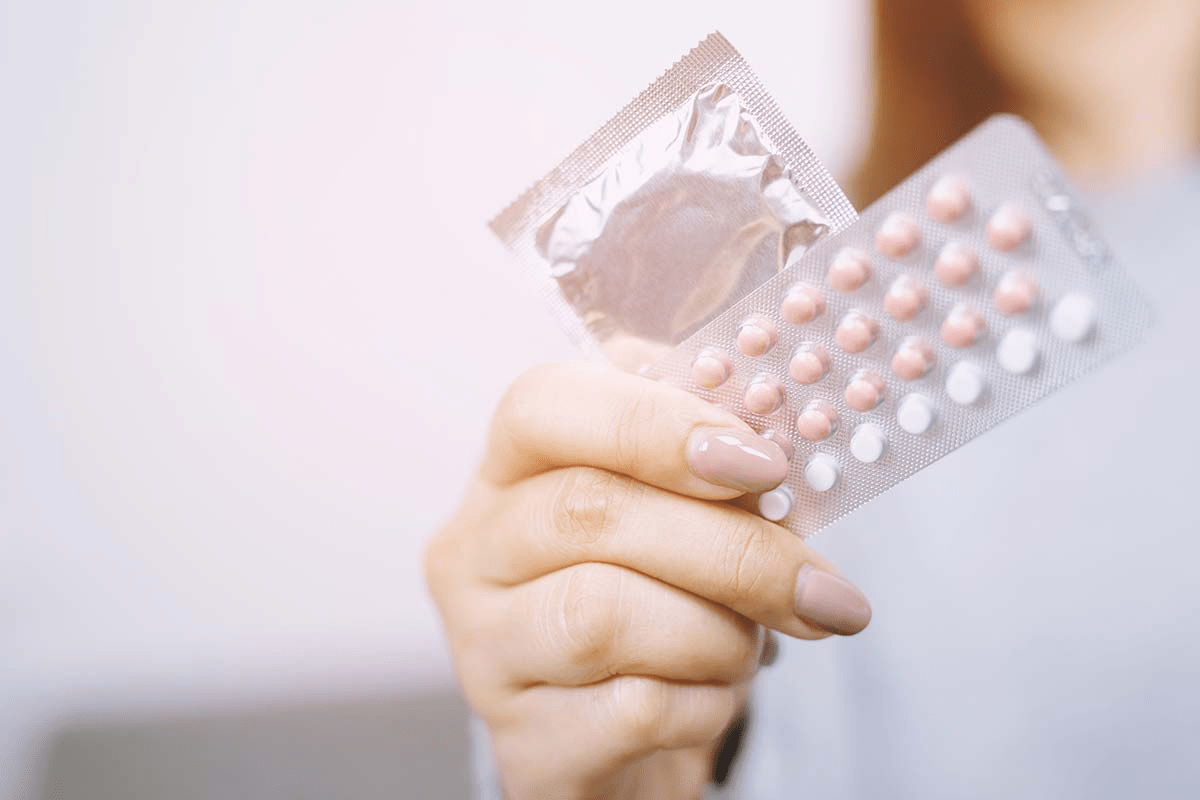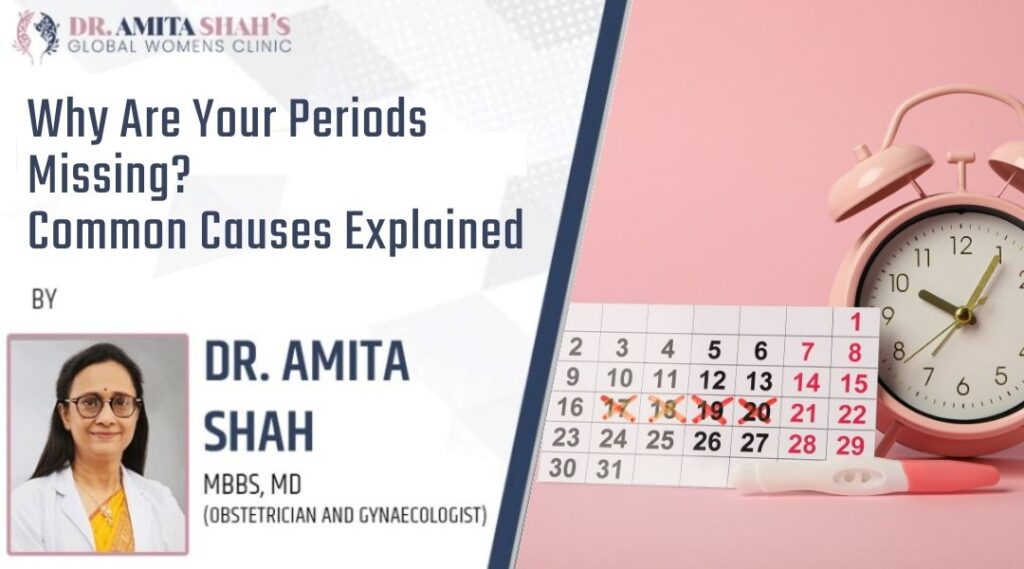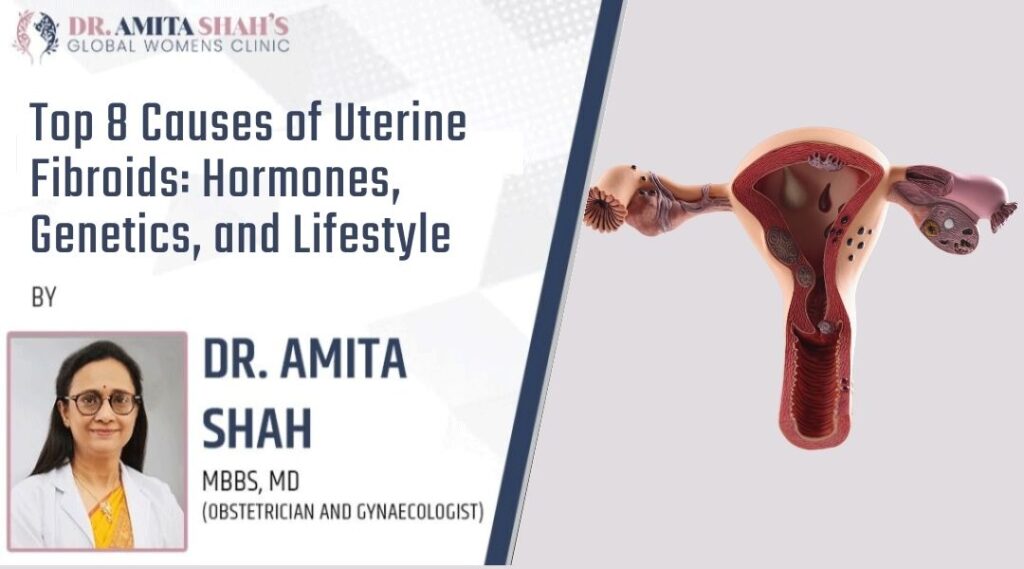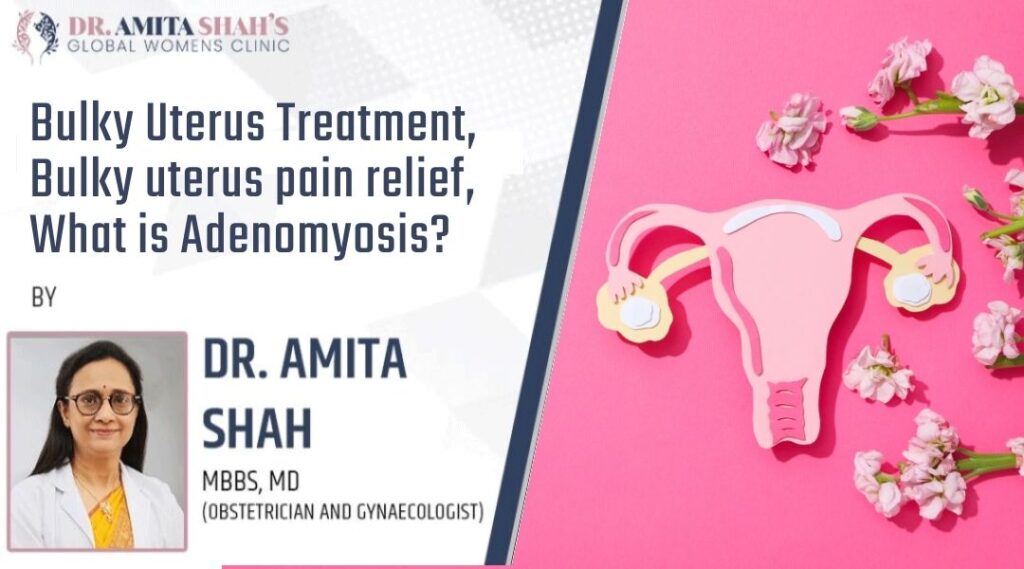Intermenstrual spotting, nausea, breast pain, headaches, weight gain, mood changes, missed periods, reduced libido, vaginal discharge, and visual changes with contact lenses are all common adverse effects of oral contraceptives.
Dr Amita Shah will guide you best on how to use contraceptives and avoid any adverse effects of birth control pills. She is available at Global Women’s Clinic in Palam Vihar, Gurugram.

Intermenstrual spotting
Approximately half of all pill users suffer vaginal bleeding between predicted periods, also known as breakthrough bleeding, most typically during the first three months of using the pill. In most situations, by the third pill pack, this has been resolved.
The tablet is still effective during spotting as long as it is taken carefully and no doses are missed. People who have 5 or more days of bleeding while taking active tablets, or severe bleeding for 3 or more days, should seek medical treatment.
Intermenstrual spotting may occur as a result of the uterus adapting to a thinner endometrial lining or as a result of the body adjusting to altered hormone levels.
Nausea
Some individuals suffer slight nausea when they initially start taking the tablet, but the symptoms normally go away within a few days. Taking the tablet with meals or before night might help reduce nausea. Anyone who has chronic or severe nausea should seek medical attention.
Breast discomfort
Breast enlargement or soreness may be caused by birth control medications. This adverse effect usually goes away a few weeks after beginning the pill, but anybody who discovers a lump in their breast has chronic discomfort or tenderness or has severe breast pain should seek medical attention.
Caffeine and salt reduction, as well as using a supportive bra, may help reduce breast soreness.

Migraines
Some individuals encounter “the pill’s” negative effects, such as irregular periods, nausea, migraines, or weight gain.
Sex hormones influence the development of headaches and migraines. Hormone pills of various sorts and dosages may cause a variety of headache symptoms. Some studies have previously shown that medications containing modest levels of hormones are less likely to cause headaches.
The symptoms of a headache are likely to improve with time. Anyone who develops new headaches while taking the medication should seek medical assistance.
Gain in body weight
Clinical investigations have revealed no consistent link between birth control pill usage and weight changes. However, many individuals who take the tablet notice some fluid retention, particularly in the breast and hip regions.
The oestrogen in birth control tablets may similarly alter fat cells, albeit the hormone causes the cells to become bigger rather than more numerous.
Mood swings
People who have a history of depression should talk to their doctor about it since some people develop sadness or other emotional changes while taking the drug. Anyone suffering mood swings while taking pills should consult their doctor.
A 2015 research of 90 women published in Human Mapping discovered that using the birth control pill was related to lower cortical thickness measures in the lateral orbitofrontal cortex and the posterior cingulate cortex. These brain regions are associated with reward response and evaluating incoming stimuli.
The study’s authors state that further research is needed to determine whether or not there is a link between cortical thinning in certain regions of the brain, mood changes, and birth control pill usage.
Missed Periods
Despite careful pill administration, a period may be skipped or missed at times. Stress, sickness, travel, and hormonal or thyroid problems may all have an impact on this.
If a period is lost or extremely light while on the pill, a pregnancy test is advised before taking the following pack of pills; if future periods are missed or very light, seek medical help.
Reduced libido
Some people’s sex drive (libido) may be affected by the hormone(s) in the contraceptive pill. Many additional causes, however, might lead to a decline in libido. If the reduced libido continues and is troublesome, it should be handled with a physician.
However, in rare cases, the birth control pill might boost libido. This rise might be attributed to the alleviation of uncomfortable symptoms such as menstrual cramps, premenstrual syndrome, endometriosis, and uterine fibroids.
Vaginal discharge
When using the pill, some individuals notice changes in their vaginal discharge. This may include changes in vaginal lubrication, changes in the type of discharge, and changes that might disrupt sexual intercourse. If vaginal lubrication is diminishing, more lubrication may be used to make intercourse more pleasant.
Changes in vaginal discharge are usually not dangerous. Anyone worried about such changes, especially those who suspect an infection, should consult with their doctor.
Precautions and risks associated with taking the pill
Combination medicines can raise the chance of cardiovascular adverse effects such as heart attack, stroke, and blood clots. People with a history of blood clots, heart attacks, or strokes should avoid using the combined birth control pill.
Blood clots are uncommon, but anybody with a history of blood clots, heart attacks, or strokes should avoid taking the combination birth control pill and consult with their doctor about an alternate strategy.
It’s also worth noting that an unwanted pregnancy has its own set of complications. The experts advise avoiding using combo tablets in women over the age of 35 who smoke. Obesity and a family history of heart disease are two more risk factors for blood clots.
Hormonal contraceptives should not be used if you have a personal history of liver or heart illness, uterine or breast cancer, uncontrolled blood pressure, or headaches with an aura. Combination tablets containing drospirenone, a synthetic progesterone, may increase the risk of blood clots, including deep vein thrombosis and pulmonary embolism.
































